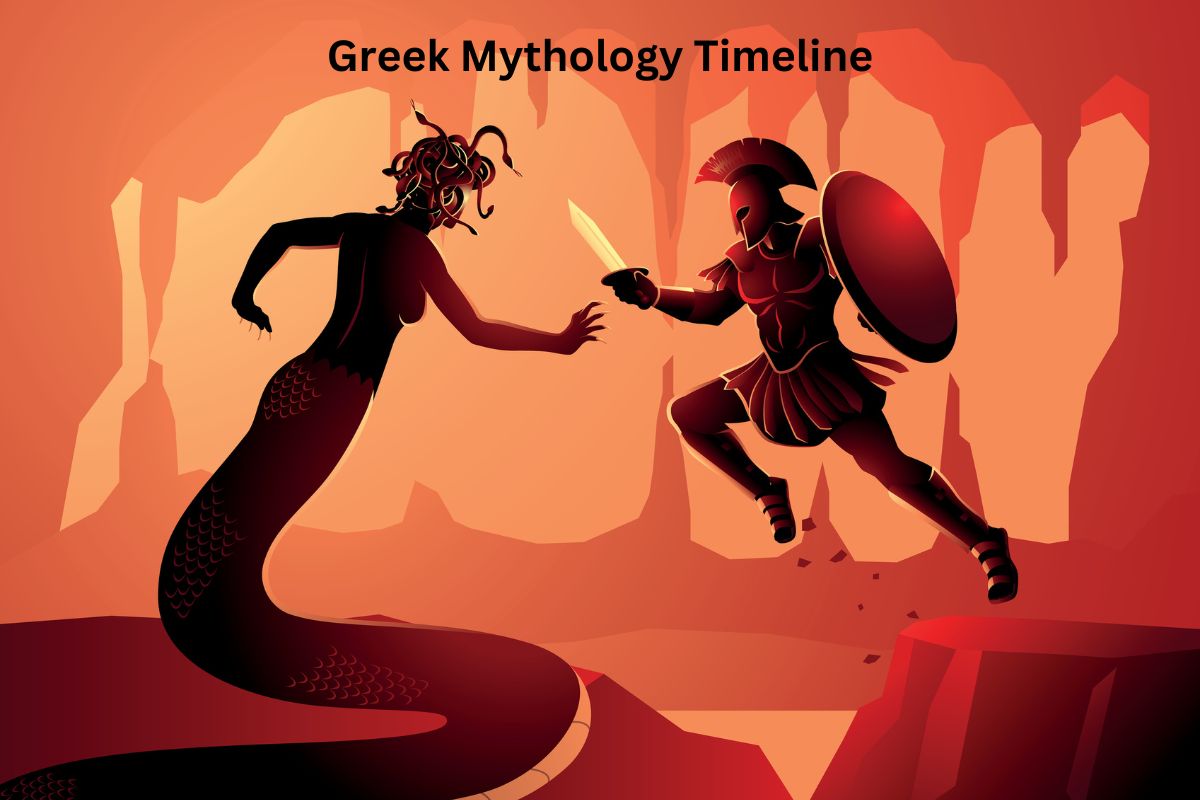Greek mythology is a body of stories originating from ancient Greece, serving to explain the world’s origins and the customs and beliefs of its people.
These myths, which were told and retold through generations, were an essential part of the Ancient Greek’s cultural identity, providing narratives about gods, heroes, and the nature of the universe itself.
Greek gods and goddesses were anthropomorphic – they had human qualities, emotions, and even physical bodies. They were immortal and held power over specific domains.
For example, Zeus was the king of the gods and ruled the sky, Poseidon ruled the sea, and Hades ruled the underworld. They often interacted with humans and even bore children with them, creating heroes or demigods.
Greek mythology consists of epic tales, including the Titanomachy (the battle between the Titans and Olympians), the creation of mankind by Prometheus, the exploits of heroes like Hercules, the Trojan War, and many more.
These myths had a substantial influence not only on Greek culture but also on western civilization, impacting its literature, arts, and even modern scientific names and terms.
Even today, Greek mythology continues to inspire and fascinate people worldwide, with its themes and characters prevalent in popular culture.

| Order | Event | Description |
|---|---|---|
| 1 | Creation of the Universe (Chaos) | From Chaos came Gaia (Earth), Tartarus (the Underworld), and Eros (Love). |
| 2 | The Titans’ Reign | Gaia and Uranus gave birth to the twelve Titans. Cronus overthrew Uranus and became the ruler of the gods. |
| 3 | The Birth of the Olympians | Rhea saved Zeus from being swallowed by Cronus. Zeus grew up in secret and later forced Cronus to regurgitate his siblings. |
| 4 | The Titanomachy (War of the Titans) | Zeus and his siblings waged war against the Titans. After ten years, the Olympians won and the Titans were banished to Tartarus. |
| 5 | The Reign of the Olympians | The Olympian gods took control, with Zeus as the king. The world was divided among Zeus (sky), Poseidon (sea), and Hades (underworld). |
| 6 | Prometheus and the Creation of Man | Prometheus, a Titan, created humanity out of clay and gave them fire stolen from the gods. |
| 7 | Pandora’s Box | Zeus created Pandora, the first woman, who inadvertently released the world’s misfortunes from a box. |
| 8 | Age of Heroes and Demigods | This era saw the lives of heroes like Hercules, Theseus, Perseus, and Jason. |
| 9 | Trojan War | The most famous of Greek myths, the Trojan War was fought over Helen. This event is documented in Homer’s “Iliad.” |
| 10 | Odysseus’s Journey | The “Odyssey” describes the 10-year journey of Odysseus returning home from the Trojan War. |
Timeline of Greek Mythology
The Creation of the Universe
In the beginning, according to Hesiod’s “Theogony,” there was only Chaos. This isn’t chaos in the way we think of it today as disorder or confusion, but more a void or nothingness that existed before the cosmos.
From Chaos emerged the first divine entities:
- Gaia (Earth), Tartarus (the deep abyss used as a dungeon of torment for the wicked and a prison for the Titans)
- Eros (representing love or desire, and often seen as one of the fundamental causes of creation).
- Erebus (representing darkness), who with his sister Nyx (Night), mothered Aether (Light) and Hemera (Day).
These primordial deities represent the fundamental elements of the universe.
The Titans’ Reign
Gaia and Uranus (Sky) were the parents of the twelve Titans: Oceanus, Coeus, Crius, Hyperion, Iapetus, Theia, Rhea, Themis, Mnemosyne, Phoebe, Tethys, and the youngest, Cronus.
Uranus also fathered the three one-eyed Cyclopes and the three hundred-handed Hecatoncheires with Gaia. Fearful of their power, Uranus pushed his monstrous children back into Gaia’s womb, causing her great pain.
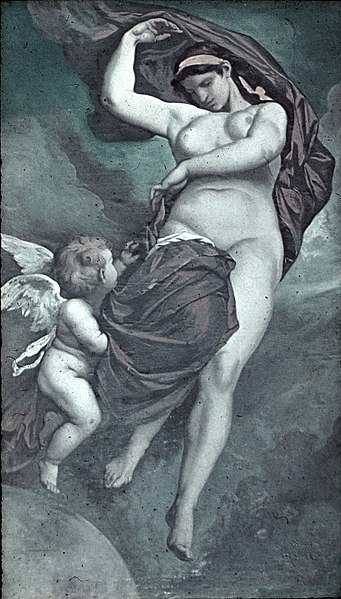
Angered by this, Gaia crafted a sickle made of adamant and gave it to her son Cronus, who castrated his father Uranus.
From the blood that spilled onto the Earth, other beings sprang forth, including the Giants, the Furies, and the Meliae (ash-tree nymphs). With the overthrow of Uranus, Cronus became the ruler of the gods with his sister Rhea as his wife.
The Birth of the Olympians
Cronus and Rhea had six children: Hestia, Demeter, Hera, Hades, Poseidon, and Zeus. However, Cronus, fearing a prophecy that predicted he would be overthrown by one of his children, swallowed each of them as they were born.
Rhea, wanting to save her youngest child, Zeus, gave Cronus a stone wrapped in swaddling clothes to swallow instead. Zeus was then hidden and raised in secret.
When he grew up, with the help of Metis (Wisdom and Cunning), Zeus tricked Cronus into drinking a potion that caused him to regurgitate his swallowed children. Now freed, these gods, later known as the Olympians, joined Zeus in his battle against the Titans.
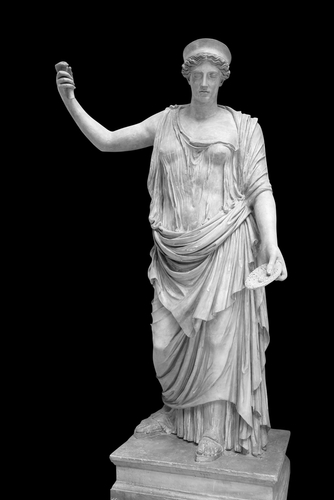
The Titanomachy (War of the Titans)
The Titanomachy, also known as the War of the Titans, was a decade-long series of battles fought in Thessaly. It was waged between the Titans, led by Cronus, and the younger generation of gods, known as the Olympians, led by Zeus.
The Olympians sought to overthrow the Titans and gain control of the cosmos. The Titans were formidable foes, but Zeus had secured the help of the Cyclopes, who had been imprisoned by Cronus, and the Hecatoncheires, both of whom were eager for revenge.
The Cyclopes provided Zeus with his famous thunderbolt, while the Hecatoncheires used their hundred hands to hurl massive boulders.
In the end, the Olympians emerged victorious. The Titans were defeated and imprisoned in Tartarus, a deep abyss that serves as a dungeon for the wicked and as a prison for the Titans.
The Reign of the Olympians
With the defeat of the Titans, Zeus and his siblings — Hera, Poseidon, Hades, Hestia, and Demeter — established their rule as the Olympian gods, named so for their residence on Mount Olympus. Zeus became the king of the gods, ruling over the sky and the earth.
His most famous symbol, the thunderbolt, was a sign of his authority. Poseidon ruled the sea and was associated with earthquakes and horses.
Hades, although not typically included among the twelve Olympians, was given dominion over the Underworld, where he ruled over the dead. The Earth was considered common to all.
Prometheus and the Creation of Man
Prometheus, despite being a Titan, had sided with the Olympians during the Titanomachy. Known for being cunning and defying the gods in his affection for man, Prometheus is famously credited for creating mankind out of clay.
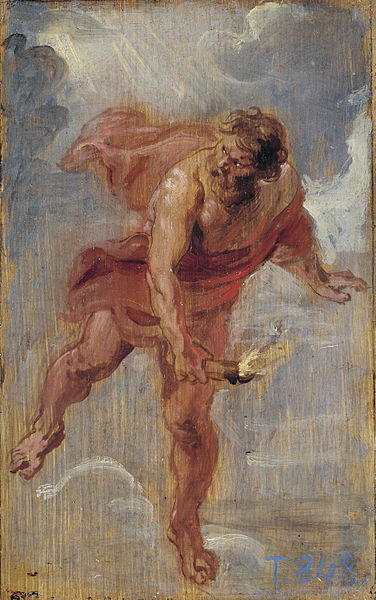
Each of the gods gave the human race a gift, but it was Prometheus who shaped them in the image of the gods and gave them fire. He stole the divine fire from Olympus, hiding it in a fennel stalk to bring it to the humans, which enabled progress and civilization.
For this act, he was punished severely by Zeus, who had him chained to a rock where an eagle would eat his liver daily, only for it to regrow and be eaten again the next day.
Pandora’s Box
As punishment for Prometheus’s act of giving fire to humans, Zeus ordered Hephaestus, the god of craftsmanship, to create the first woman, Pandora, from clay. Each of the gods gave her a gift, hence her name, which means “all-gifted” or “all-giving.”
Among these gifts was a box (or jar, depending on the translation) which she was told never to open.
Overwhelmed by curiosity, Pandora eventually opened the box, releasing all the evils, diseases, and hardships into the world. When she closed the box, only Hope remained inside, the only comfort for suffering humanity.
Age of Heroes and Demigods
This era is marked by the presence of several renowned heroes, often the offspring of a god and a mortal, known as demigods. This period includes various well-known mythological tales, each often tied to a particular hero.
For example, Hercules, the son of Zeus and the mortal Alcmene, is known for his Twelve Labors. Theseus, known for slaying the Minotaur, is another such hero.
Perseus, slayer of Medusa and rescuer of Andromeda, and Jason, leader of the Argonauts in the quest for the Golden Fleece, are other significant heroes from this period.
The Trojan War
The Trojan War is one of the most famous events in Greek mythology and was a major conflict between the Greeks and the inhabitants of Troy.
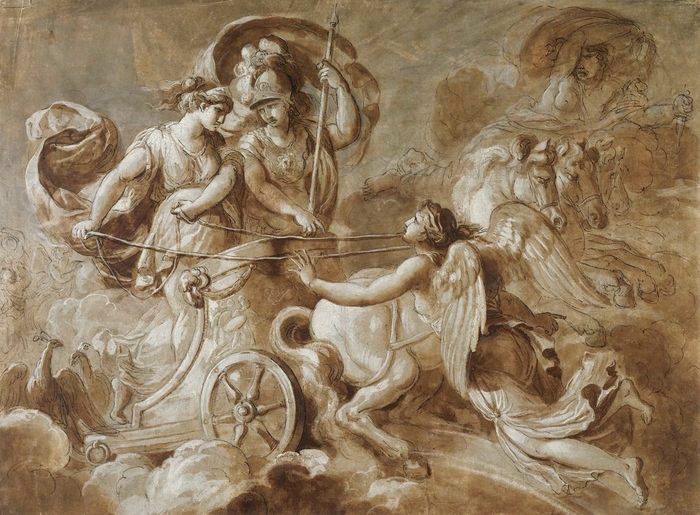
The war started when Helen, wife of Menelaus, king of Sparta, was abducted by Paris of Troy. This was perceived as an insult by the Greeks, and they waged war against Troy to retrieve Helen. Many famous Greek heroes participated in the war, including Achilles, Odysseus, and Ajax.
The war lasted ten years and was characterized by many significant events, such as the death of Achilles and the use of the Trojan horse, a cunning plan devised by Odysseus that ultimately led to the fall of Troy.
Odysseus’s Journey
The Odyssey, an epic poem by Homer, describes the journey of Odysseus, a hero of the Trojan War, as he attempts to return to his kingdom of Ithaca after the end of the war.
The journey takes ten years, during which Odysseus encounters many trials and tribulations, including surviving a shipwreck, resisting the enchanting song of the Sirens, escaping the nymph Calypso who wanted him for her husband, and evading the wrath of Poseidon, god of the sea.
Upon his return, he finds his home overrun by suitors attempting to win the hand of his wife, Penelope, who has faithfully awaited his return. With the help of his son Telemachus and the goddess Athena, he is able to reclaim his home and reunite with his wife.
